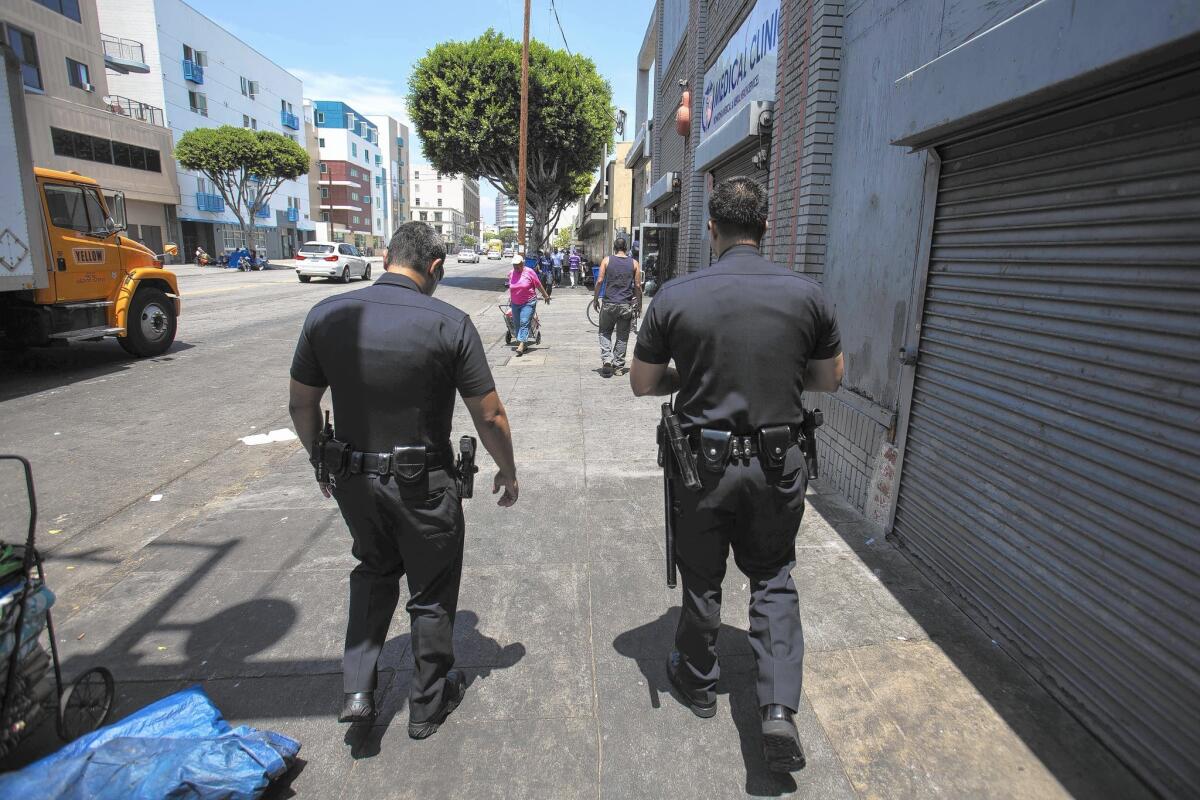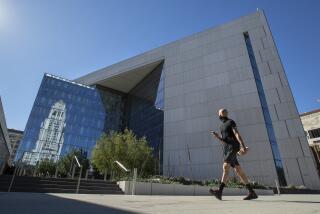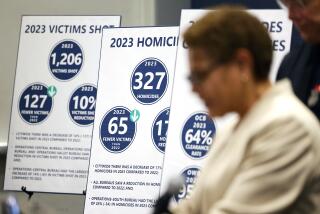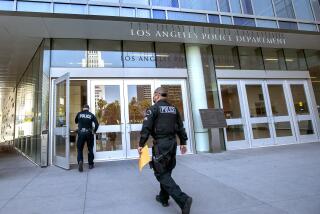Arrests by LAPD and Sheriff’s Department drop amid coronavirus outbreak

Los Angeles County’s two largest law enforcement agencies made significantly fewer arrests in recent weeks, reflecting the changing realities of policing amid the coronavirus outbreak.
The Los Angeles Police Department made 14% fewer arrests during the first 15 days of March compared with the same period last year, according to the department. The LAPD recorded 2,944 arrests during that time, compared with 3,406 the previous year.
The decline mirrors what has been happening at the the Los Angeles County Sheriff’s Department. Sheriff Alex Villanueva announced earlier this week that arrests by his deputies have plummeted from a daily average of 300 to 60.
Arrest figures may continue to decline as the agencies adapt. As the response to the coronavirus outbreak intensified this week, both departments ordered officers to cite and release people as much as possible while still arresting violent offenders.
“We don’t want to tie up resources and impact the population in our court system or jails,” LAPD spokesman Josh Rubenstein said.
The Sheriff’s Department is releasing inmates from its jails and cutting down on how many people it books into custody to protect those housed in close quarters. Additionally, the L.A. County court system has suspended all proceedings for several days.
In L.A., overall crime is down 5.8% so far this year through March 15 compared with the same time last year, according to LAPD figures.
Crime will probably decline as people change their routines, said UC Irvine criminology professor George Tita, who is part of an interdisciplinary working group studying the effect of the coronavirus on crime trends in L.A.
With residents working from home and avoiding restaurants, bars and gyms, there is less potential for street crime. With so many people staying in their homes, burglaries and property crime could decline while spousal abuse incidents may increase, Tita said.
LAPD officers receive training at the police academy on how to deal with people who have communicable diseases and are taking the necessary precautions, said Rubenstein, the department’s spokesman.
“Right now there is no indication whatsoever that officers are backing off in any way or not responding to calls or not dealing with people because of this issue,” he said. “We ask our officers to go into dangerous situations, and often they have to put their safety aside for the greater good of the public’s safety. That’s the challenge of being a police officer.”
On Sunday, LAPD officials confirmed the department’s first coronavirus case after a supervisor in the Pacific Division felt ill and went home last week. He is expected to make a full recovery.
The LAPD has been taking precautions to deal with the spread of the coronavirus. Starting Wednesday, the department closed the front desks at its 21 stations, asking residents to email instead.
All patrol officers and officers likely to come into contact with infected people have been issued a kit consisting of multiple sets of gloves, a bacteria protection mask and goggles.
Officers are directed to use the items when responding to a call or making contact with a possible virus patient. The department has already ordered 100,000 extra masks, but officers will not wear masks as a routine matter.
Eugene O’Donnell, a professor at John Jay College of Criminal Justice in New York, praised those measures, saying police officers are “very crucial if this thing ratchets up.”
“Who enforces the curfews if things go into mandatory shutdown?” he said. “Police are overstretched to begin with, and now you are entering this uncharted territory.”
A former New York police officer and prosecutor, O’Donnell said officers have the same anxieties as the general public, but they are much more in harm’s way.
“The job of a police officer is inherently close-contact work with strangers and some of the most marginalized people, including many people with no access to healthcare,” O’Donnell said.
More to Read
Sign up for Essential California
The most important California stories and recommendations in your inbox every morning.
You may occasionally receive promotional content from the Los Angeles Times.











